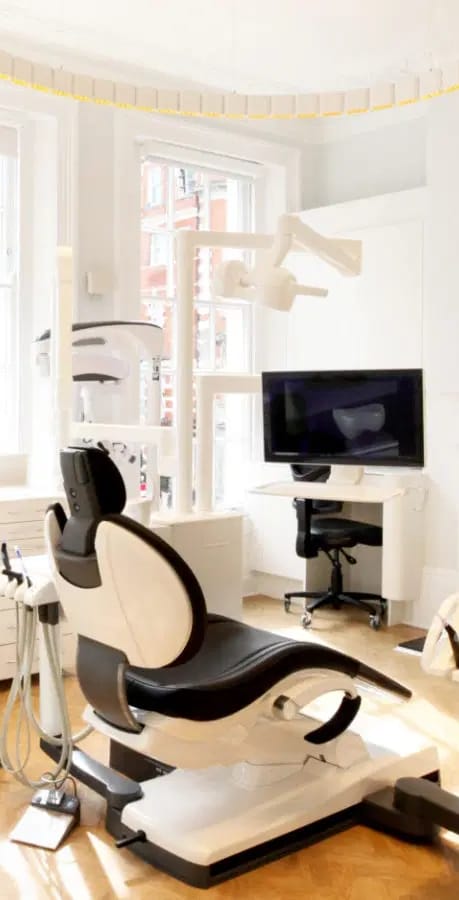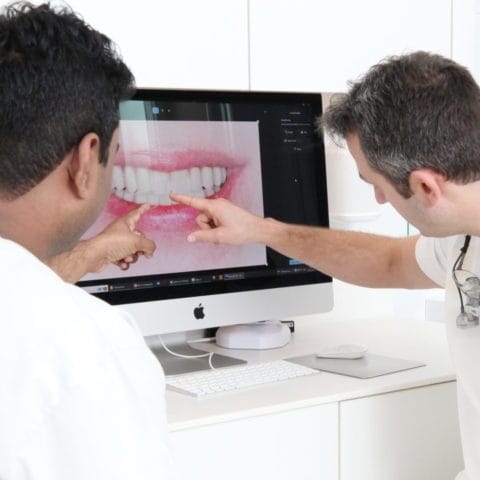Dental Crowns in London
A dental crown is a tooth-shaped cap placed over a weak tooth, covering it and restoring its function, strength and appearance. Crowns can be a good treatment choice for root-treated teeth or for teeth that have had very extensive damage.

Treatment Duration
1 hour per crown

Price
From £160

Recovery Time
1+ day

Tooth decay or trauma can severely damage teeth. Once weakened, these teeth will be mechanically less able to withstand the force of your bite. Crowns can clamp the weakened parts of the teeth, keeping everything together and preventing the tooth to fracture further or even split.
A dental crown covers the visible part of the tooth and at Wimpole Street Dental Clinic is made always of full ceramic material and will always look incredibly natural. Often a crown is also used to dramatically improve the appearance of a damaged tooth.
Who is suitable for dental crowns?
Crowns can be used in different situations:
- To adequately restore a root-treated tooth
- To restore the shape, appearance, and strength of a heavily filled tooth
- To restore a fractured tooth
- To reverse the so-called cracked tooth syndrome and to prevent cracks inside of a tooth to propagate
- To restore the function and aesthetics of severely worn-down teeth
- To dramatically improve the discolouration of a tooth
What type of crowns are there?
There are various types of dental crowns available. From the material used to make the unique sizes to the ways they are cemented in place, dental crown types are chosen based on meeting patient needs. Varieties include:
- Temporary crowns: Commonly used in dentistry to restore teeth after preparation for veneers, inlay, onlays, partial crowns or bridges. Material used is mostly all-resin composite
- Metal-ceramic crowns or porcelain-fused-to-metal crowns: The crown is produced using a porcelain veneered metal framework. For years the gold standard in dentistry
- Solid crowns made of metal: Only in exceptional circumstance used for front teeth (e.g. American rap star). As a gold version used in heavy grinders. As a non-noble alloy version to reduce costs. Also called stainless-steel crowns.
- Post crowns, which are anchored to the tooth with a pin: Sometimes used after a root canal treatment, now rarely used
- Partial crowns, which cover a small portion of the tooth: Full ceramic metal-free ceramic which replaces parts, but not all of the clinical (visible) crown
- Porcelain crowns: The term is synonymously used with all-ceramic crowns, meaning that the crown material does not contain metal
- Implant crowns: Implant crowns are placed on the titanium screw which sits in the bone
- Ceramic crowns: See porcelain crowns. Ceramic can also be used for dental bridges
- Telescopic crowns: All-ceramic, non-noble alloy or gold crowns underneath a removable “telescopic” denture
If you’re looking for dental crowns in London that provide the most aesthetically pleasing result, we recommend all-ceramic crowns. This type mimics the tooth most accurately, coming as close to your natural tooth as possible in terms of looks.
Meet your award-winning Dental Crowns dentist and team…
- We have over 75+ years of combined dentistry experience across our specialist team.
- 10,000+ treatments performed and counting.
- We are leaders in the dental industry – we regularly teach, lecture and publish our research work internationally.
Our Expertise
Protecting and restoring your smile doesn’t just have dental health benefits but it can also restore self-confidence and help patients feel less self-conscious about their appearance. Wimpole Street Dental Clinic is the perfect choice for patients considering a dental crown for a number of reasons:
Our recently refurbished clinic is conveniently located in the heart of central London off the prestigious Wimpole Street.
We utilise the very latest state-of-the-art technology to help visualise and plan our dental treatments. Using the most effective and innovative dental techniques we’re able to provide our patients with reliable, aesthetically pleasing results consistently.
Our team have decades of combined experience, craft and expertise in general dentistry and cosmetic dentistry. We are regularly invited to educate our colleagues and students on the lecture circuit worldwide and have won numerous dentistry awards. Specifically for dental crowns, we design the full ceramic crowns we use ourselves in our own dental laboratory giving us complete control over both the product and service we can offer. You can rest assured that we know every component in the dental crown and that your crown has been custom-made to the highest standard by our team.
Dental Crowns Before & Afters

Helen Li
Wimpole Street Dental has the highest most ethical standard of work, personable approach, clear and safe procedures, top notch excellence and reliability in treatment provided with utmost professionalism from crème de la crème world class specialists all under one roof.
What happens during dental crown preparation?
Your dentist offers you an initial consultation. If after consultation, you decide with your dentist to proceed with a dental crown then we prepare the natural tooth to be able to fit the crown accurately.
We create a digital impression of your tooth for our master dental technician in our dental laboratory in London or Munich to produce the crown in the ceramic material adjusting for the exact colour of your natural teeth to deliver the perfect match in both functionality and aesthetics for you.
As we prepare your crown, we fit a temporary crown for you on the affected tooth.
When the crown is ready, we clean the affected tooth, fitting the crown to it seamlessly with adhesive dental cement.
Post-treatment, we recommend our patients schedule routine appointments with us to include an assessment of the stability of their dental crowns now fitted.
Take your first step with Wimpole Street Dental Clinic
Discover the path to a brighter smile with Wimpole Street Dental Clinic! Our team of skilled professionals utilizes advanced technology to provide personalised dental care in a comfortable setting.
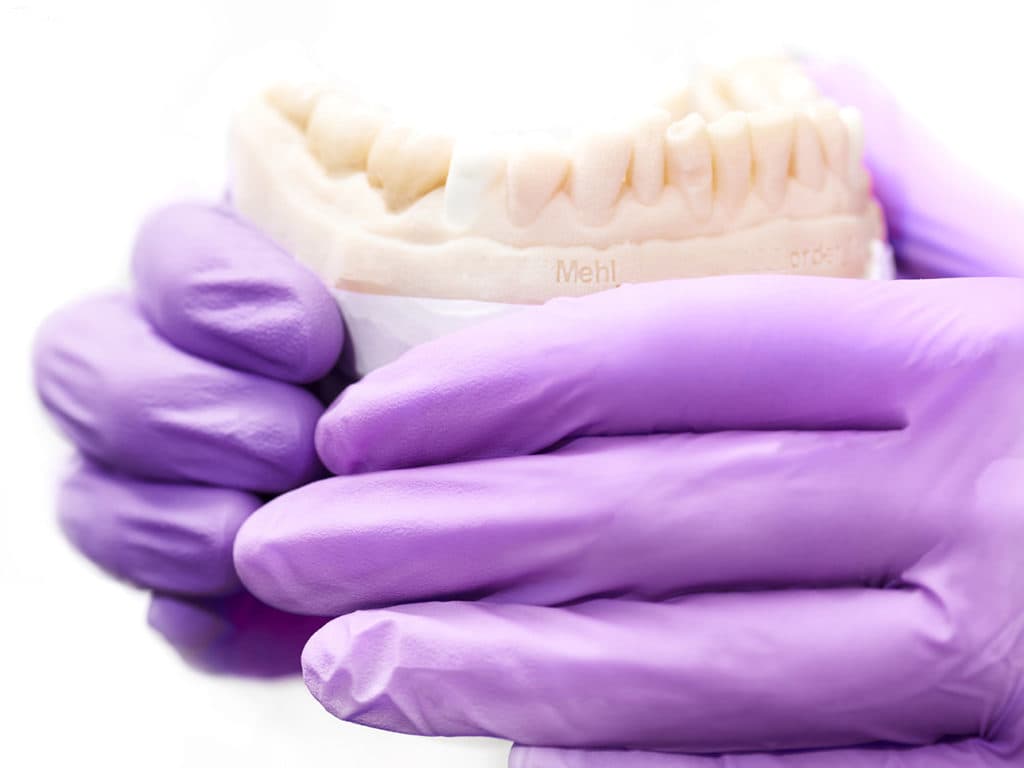
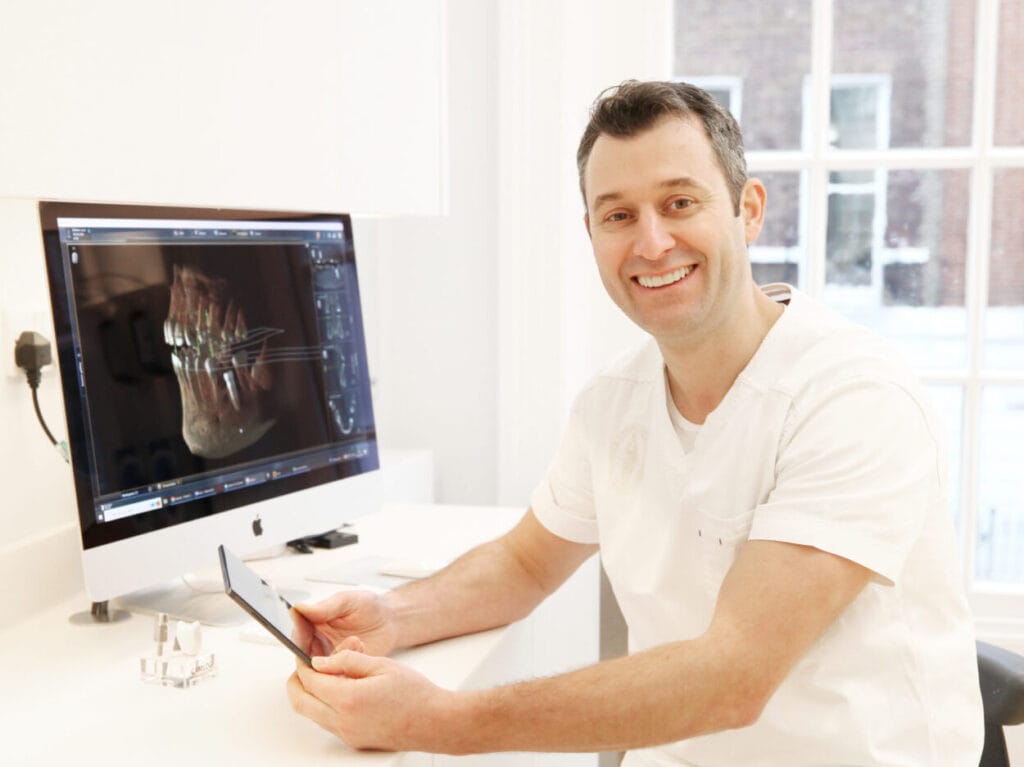
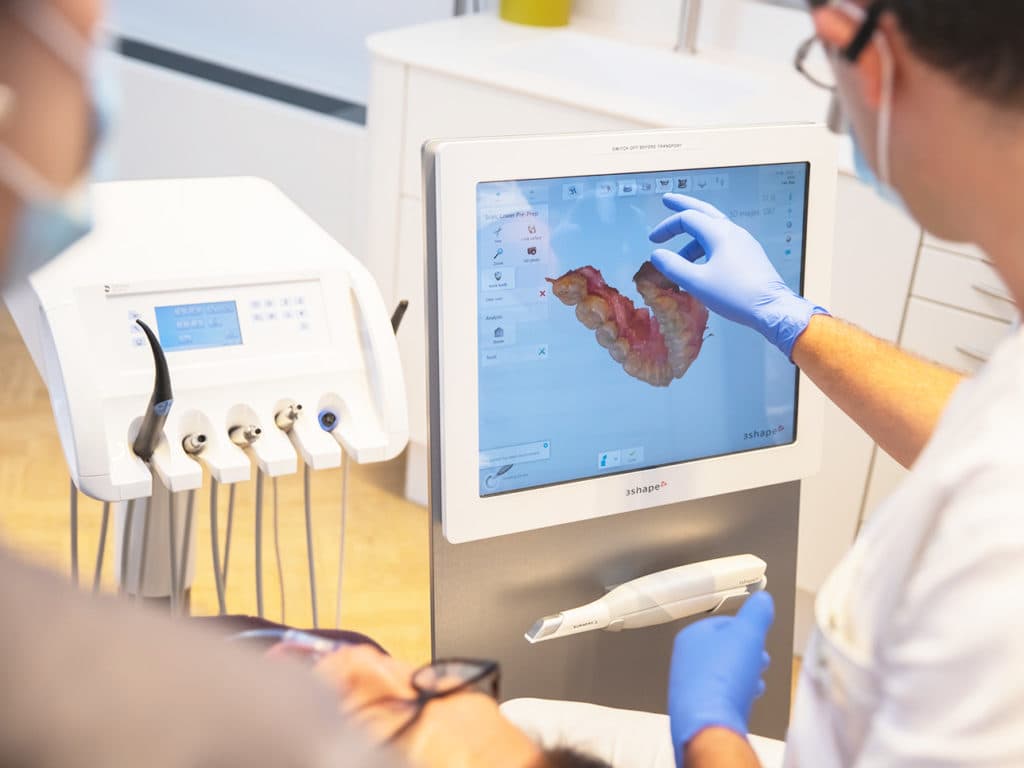
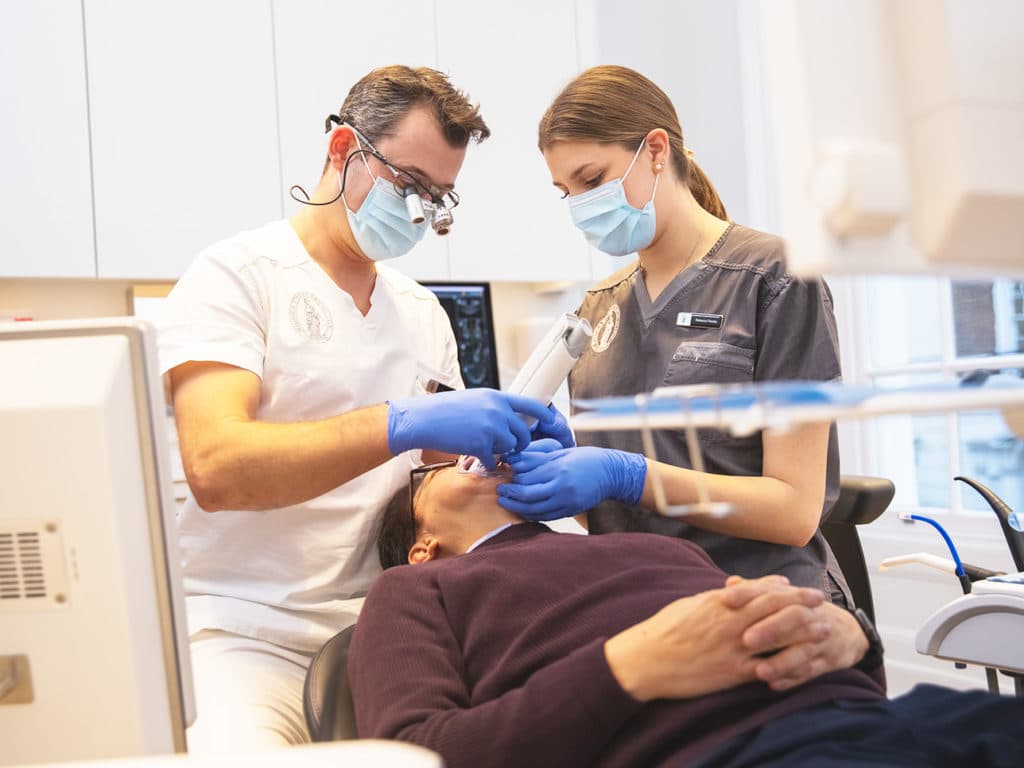

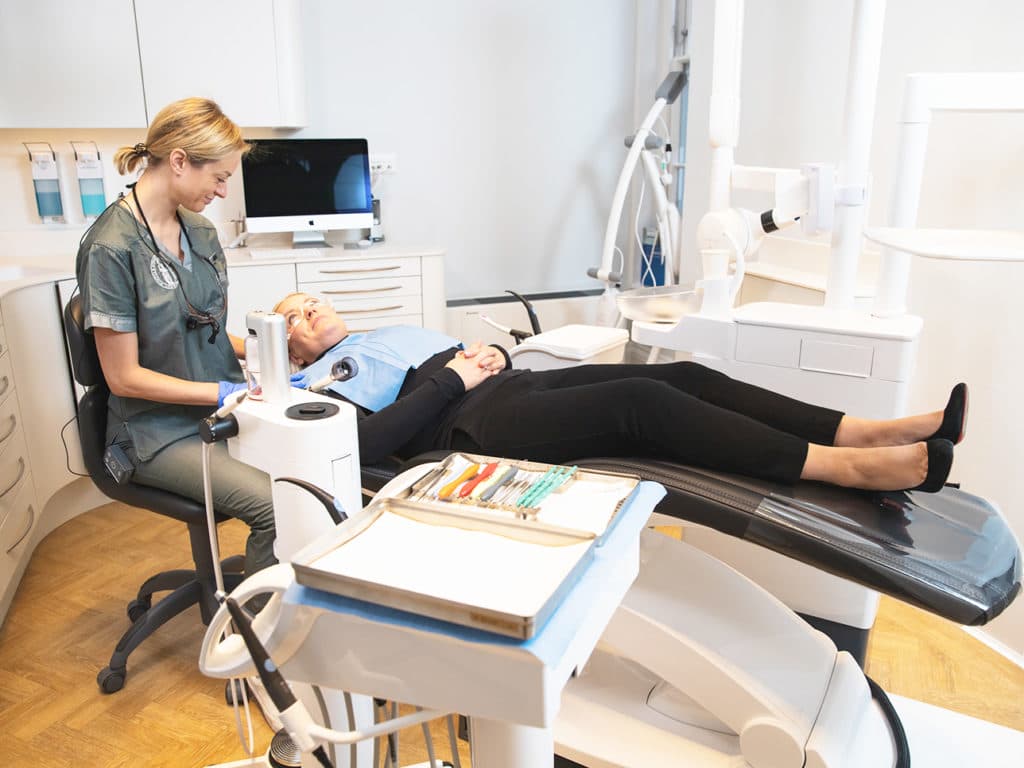
New page design
Written by: Prof Dr Christian Mehl
Medically reviewed by: Dr Raul Costa
Author biography added
Written by: Prof Dr Christian Mehl
Medically reviewed by: Dr Raul Costa
Original content created
Written by: Prof Dr Christian Mehl
Medically reviewed by: Dr Raul Costa
Wimpole St Dental Clinic has strict sourcing guidelines and relies on peer-reviewed studies, academic research institutions, and medical associations. We avoid using tertiary references. You can learn more about how we ensure our content is accurate and current by reading our editorial policy.
- Mehl C, Harder S, Wolfart M, Kern M, Wolfart S. Retrievability of implant-retained crowns following cementation. Clin Oral Implants Res. 2008 Dec;19(12):1304-11. doi: 10.1111/j.1600-0501.2008.01587.x. PMID: 19040447.
- Mehl C, Harder S, Steiner M, Vollrath O, Kern M. Influence of cement film thickness on the retention of implant-retained crowns. J Prosthodont. 2013 Dec;22(8):618-25. doi: 10.1111/jopr.12058. Epub 2013 Aug 5. PMID: 23915027.
- Mehl C, Scheibner S, Ludwig K, Kern M. Wear of composite resin veneering materials and enamel in a chewing simulator. Dent Mater. 2007 Nov;23(11):1382-9. doi: 10.1016/j.dental.2006.11.026. Epub 2007 Jan 8. PMID: 17210173.
- Cheung W. A review of the management of endodontically treated teeth. Post, core and the final restoration. J Am Dent Assoc. 2005 May;136(5):611-9. doi: 10.14219/jada.archive.2005.0232. PMID: 15966648.
- Patnana AK, Chugh VK, Chugh A, Vanga NRV, Kumar P. Effectiveness of zirconia crowns compared with stainless steel crowns in primary posterior teeth rehabilitation: A systematic review and meta-analysis. J Am Dent Assoc. 2022 Feb;153(2):158-166.e5. doi: 10.1016/j.adaj.2021.08.005. PMID: 35086644.
- Patnana AK, Chugh VK, Chugh A, Vanga NRV, Kumar P. Effectiveness of zirconia crowns compared with stainless steel crowns in primary posterior teeth rehabilitation: A systematic review and meta-analysis. J Am Dent Assoc. 2022 Feb;153(2):158-166.e5. doi: 10.1016/j.adaj.2021.08.005. PMID: 35086644.
- Hammoudi W, Trulsson M, Svensson P, Smedberg JI. Long-term results of a randomized clinical trial of 2 types of ceramic crowns in participants with extensive tooth wear. J Prosthet Dent. 2022 Feb;127(2):248-257. doi: 10.1016/j.prosdent.2020.08.041. Epub 2020 Dec 7. PMID: 33303191.











